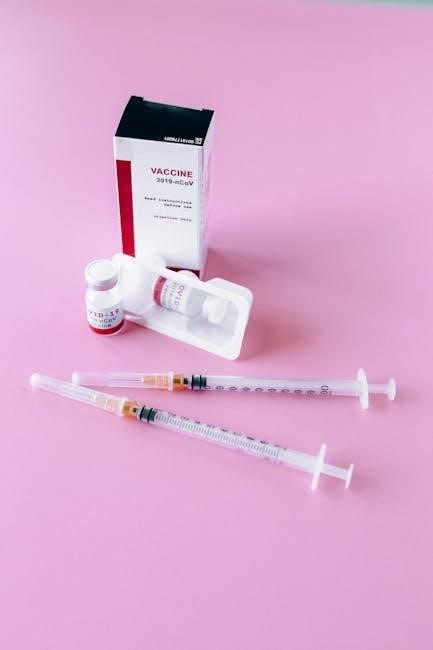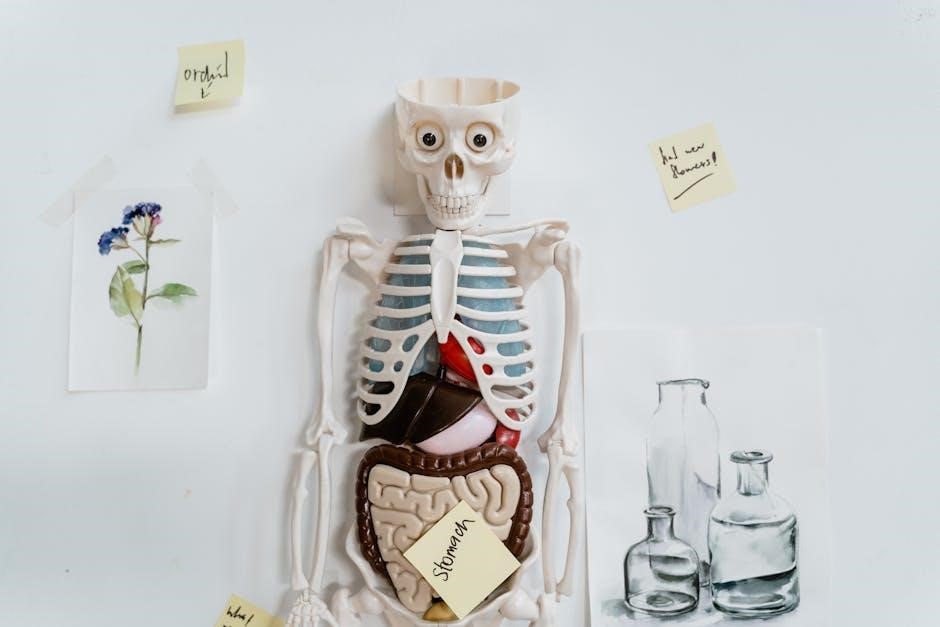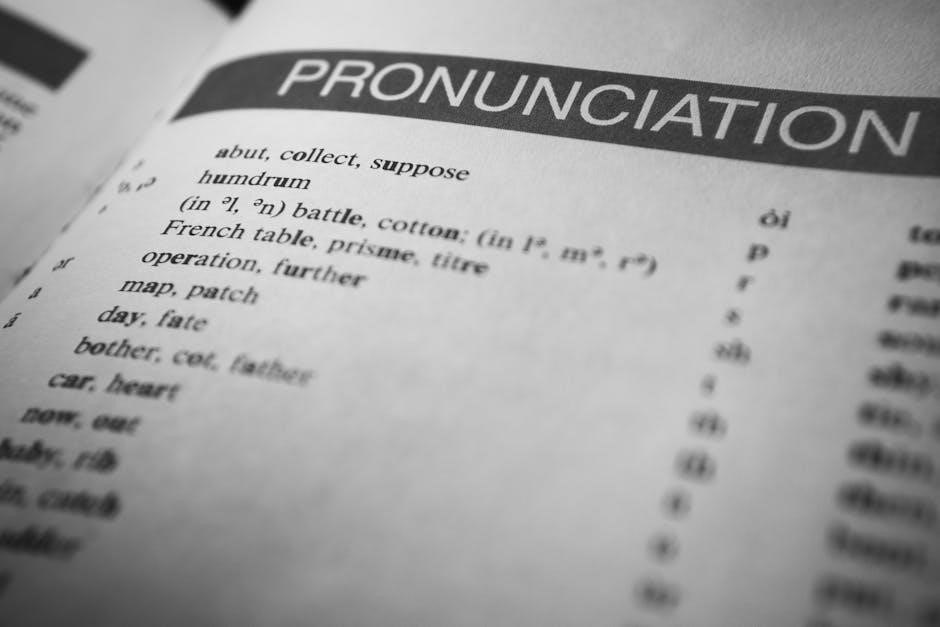
medication aide study guide for nc
This guide provides a comprehensive overview for aspiring medication aides in North Carolina‚ covering key roles‚ responsibilities‚ and best practices for safe and effective medication administration.
1.1 Overview of the Study Guide
This section introduces the structure and content of the study guide‚ detailing its focus on medication administration in North Carolina. It outlines key topics‚ including legal requirements‚ safety protocols‚ and best practices‚ while emphasizing preparation for certification; The guide is designed to equip aspiring medication aides with essential knowledge and skills‚ ensuring safe and effective patient care.
1.2 Importance of Proper Medication Administration
Proper medication administration is critical for patient safety and therapeutic effectiveness. Accurate adherence to the five rights of medication administration—right patient‚ drug‚ dose‚ time‚ and route—prevents errors and adverse reactions. Medication aides play a vital role in ensuring safe practices‚ which upholds patient trust and legal standards. Proper administration also minimizes complications‚ enhances treatment outcomes‚ and maintains ethical care standards in healthcare settings.
Key Concepts in Medication Administration
This section covers foundational principles‚ including the five rights of medication administration‚ understanding labels‚ types of medications‚ and safety guidelines to ensure accurate and safe drug delivery.
2.1 The Five Rights of Medication Administration
The five rights of medication administration—right patient‚ right medication‚ right dose‚ right route‚ and right time—are critical for ensuring patient safety and preventing errors. These principles guide healthcare professionals in delivering medications accurately and safely. Understanding and applying these rights consistently is essential for all medication aides to maintain high standards of care and protect patients from potential harm.
2.2 Understanding Medication Labels and Orders
Understanding medication labels and orders is crucial for accurate administration. Labels include the patient’s name‚ medication name‚ dosage‚ route‚ and frequency. Orders are instructions from healthcare providers‚ detailing medication specifics. Medication aides must verify all details to ensure adherence to prescribed regimens. Accurate interpretation of labels and orders prevents errors‚ ensuring safe and effective administration while maintaining legal and professional standards of care.
2.3 Common Types of Medications and Their Uses
Medications are categorized based on their therapeutic effects. Common types include analgesics for pain relief‚ antihypertensives to manage blood pressure‚ and antidiabetics to regulate blood sugar. Anticoagulants prevent blood clots‚ while antibiotics target infections. Understanding these categories helps medication aides administer drugs safely and effectively‚ ensuring patients receive appropriate treatment for their conditions. This knowledge is essential for accurate administration and patient care.

Legal and Ethical Considerations
Understanding legal and ethical standards is crucial for medication aides in NC to prevent errors and ensure accountability while respecting patient rights and confidentiality.
3.1 NC State Laws and Regulations
North Carolina enforces specific laws and regulations for medication aides to ensure safe and legal medication administration. These include mandatory training‚ certification requirements‚ and adherence to state health department guidelines. The NC Board of Nursing oversees medication aide practices‚ while the North Carolina Administrative Code (NCAC) outlines detailed rules for medication administration in healthcare settings. Understanding these regulations is essential for compliance and professional accountability.
3.2 Patient Privacy and Confidentiality
Respecting patient privacy and confidentiality is a cornerstone of healthcare. Medication aides must adhere to laws like HIPAA‚ ensuring patient information remains protected. Accessing only necessary data and securely handling records are essential. Breaches can lead to legal consequences and erosion of trust. Upholding confidentiality fosters a safe and respectful care environment‚ aligning with ethical standards and patient rights.
3.4 Ethical Issues in Medication Administration
Ethical issues in medication administration include respecting patient autonomy‚ ensuring beneficence‚ and avoiding harm. Medication aides must prioritize patient well-being‚ maintain confidentiality‚ and adhere to legal standards. Ethical dilemmas may arise in cases of medication refusal or end-of-life care. Upholding professional integrity and transparency builds trust and ensures high-quality patient care. Adhering to ethical guidelines is essential for safe and compassionate medication management.

Safety in Medication Administration
Safety in medication administration ensures accurate‚ safe delivery of medications‚ minimizing errors and adverse reactions. Proper documentation and monitoring are critical to maintaining patient well-being and legal compliance.
4.1 Preventing Medication Errors
Preventing medication errors involves adhering to the five rights: right patient‚ drug‚ dose‚ route‚ and time. Double-checking orders‚ using barcode scanning‚ and monitoring for adverse reactions are essential. Proper documentation and clear communication with healthcare teams help minimize mistakes. Understanding medication labels and patient-specific factors‚ such as allergies‚ is critical. Regular training and staying updated on medication protocols ensure safe administration practices and protect patient well-being.
4.2 Recognizing Adverse Drug Reactions
Recognizing adverse drug reactions is crucial for patient safety. Common reactions include allergic responses‚ gastrointestinal issues‚ or changes in vital signs. Monitor patients for symptoms like rash‚ dizziness‚ or difficulty breathing. Document observations and report them immediately to healthcare providers. Understanding drug side effects and patient-specific risk factors helps in early identification. Prompt action ensures timely intervention and prevents complications‚ safeguarding patient well-being and maintaining trust in care.
4.3 Proper Documentation Techniques
Proper documentation is essential for accountability and patient safety. Accurately record administered medications‚ dosages‚ and times using the Medication Administration Record (MAR). Note any observations or patient reactions. Use clear‚ legible handwriting or electronic systems. Ensure entries are dated‚ timed‚ and signed. Avoid abbreviations that could cause confusion. Regularly review and verify documentation for accuracy. Proper documentation ensures continuity of care and compliance with legal standards‚ protecting both patients and healthcare providers.
The Medication Administration Process
The medication administration process involves preparing‚ administering‚ and monitoring medications safely. It requires attention to detail‚ adherence to protocols‚ and clear communication to ensure patient safety and efficacy.
5.1 Preparing Medications for Administration
Preparing medications involves reviewing orders‚ using the MAR‚ and verifying labels. Measure doses accurately‚ organize medications by patient‚ and ensure all necessary supplies are ready. Double-check expiration dates and potential allergies. This step ensures safety‚ efficiency‚ and compliance with protocols‚ laying the groundwork for accurate administration and minimizing errors.
5.2 Administering Medications Safely
Administering medications safely requires verifying the five rights: right patient‚ right medication‚ right dose‚ right route‚ and right time. Use barcode scanning to confirm patient identity and medication details. Ensure the patient is in the correct position and monitor for immediate reactions. Document administration promptly and accurately in the MAR. Always follow facility protocols and report any discrepancies or concerns to supervisors. This ensures patient safety and accountability. Proper technique minimizes risks and enhances care quality.
5.3 Monitoring and Observing Patients
After administering medications‚ closely observe patients for desired effects and potential adverse reactions. Assess vital signs and document any changes. Monitor for common side effects‚ such as dizziness or nausea‚ and report unusual symptoms to the healthcare team. Communicate clearly with patients about how they feel and provide reassurance. Timely documentation ensures continuity of care and helps identify patterns or concerns. This step is crucial for patient safety and effective care outcomes.
5.4 Handling Medication Errors
Immediately identify and report any medication errors to the healthcare team. Document the error‚ including the medication involved‚ dosage‚ and circumstances. Notify the physician and pharmacist for guidance on corrective actions. Provide clear communication to the patient and ensure their safety. Transparency and prompt action are critical to minimizing harm and maintaining trust. Proper documentation ensures accountability and helps prevent future errors.
Special Considerations in NC
North Carolina has specific regulations and training requirements for medication aides. Certification and recertification processes are overseen by the NC Board of Nursing‚ ensuring compliance with state laws.
6.1 State-Specific Training Requirements
Medication aides in North Carolina must complete a state-approved training program‚ which includes both classroom instruction and clinical training. The program covers the five rights of medication administration‚ handling adverse reactions‚ and legal considerations. Candidates must also hold a current CNA certification and pass a competency exam. The NC Board of Nursing regulates these requirements to ensure safe and effective medication administration practices across healthcare settings.
6.2 Certification Process for Medication Aides in NC
In North Carolina‚ certification for medication aides requires completing a state-approved training program and passing a written competency exam. Candidates must also hold a valid CNA certification and submit an application through the NC Board of Nursing. The certification process ensures that medication aides meet the necessary standards to administer medications safely and effectively in healthcare settings.
6.3 Continuing Education and Recertification
Medication aides in North Carolina must complete continuing education requirements to maintain certification. The state mandates a certain number of hours focused on medication safety‚ updates in healthcare‚ and professional development. Recertification typically occurs every two years‚ ensuring aides stay current with best practices. This process supports ongoing competency and enhances patient care outcomes.

Clinical Skills and Best Practices
This section covers essential clinical competencies for medication aides‚ focusing on accurate administration‚ patient monitoring‚ and proper documentation. Best practices include using the MAR effectively‚ managing controlled substances‚ and ensuring safe storage and disposal of medications.
7.1 Using the Medication Administration Record (MAR)
The Medication Administration Record (MAR) is a critical tool for documenting medication administration. It ensures accurate tracking of doses‚ times‚ and routes‚ preventing errors. The MAR includes patient details‚ prescribed medications‚ and administration schedules. Proper use of the MAR‚ whether electronic (eMAR) or paper-based‚ promotes accountability and transparency in patient care. Regular updates and reviews of the MAR are essential for maintaining patient safety and adherence to medication plans.
7.2 Managing Controlled Substances
Managing controlled substances requires strict adherence to state and federal regulations. Medication aides must ensure accurate documentation‚ secure storage‚ and proper disposal of these medications. Regular audits and monitoring are essential to prevent diversion and misuse. Proper labeling‚ limited access‚ and use of secure storage containers are critical. Training on handling controlled substances is mandatory to maintain compliance and patient safety in healthcare settings.
7.3 Proper Medication Storage and Disposal
Proper medication storage involves keeping drugs in their original containers‚ away from direct sunlight‚ and at appropriate temperatures. Controlled substances must be stored in secure‚ locked containers. Dispose of expired or unused medications safely‚ following state and federal guidelines. North Carolina regulations emphasize avoiding sewer disposal and using designated drop-off locations. Proper labeling and organization of medications prevent mix-ups and ensure patient safety.
Patient Interaction and Communication
Effective communication is key to building trust with patients. Listen actively‚ show empathy‚ and explain medications clearly. Address concerns and fears‚ encouraging questions and open dialogue.
8.1 Communicating with Patients About Medications
Effective communication with patients about medications is crucial for safe administration. Use simple‚ clear language to explain medication purposes‚ dosages‚ and potential side effects. Encourage patients to ask questions and express concerns. Active listening and empathy build trust‚ ensuring patients feel understood. Provide written instructions when possible to reinforce verbal information. This fosters adherence and reduces errors. Tailor communication to individual needs‚ considering literacy levels and cultural backgrounds.
8.2 Patient Education on Medication Use
Patient education is vital for safe and effective medication use. Teach patients to understand their medications‚ including names‚ purposes‚ and proper administration techniques. Emphasize the importance of adhering to prescribed dosages and schedules. Discuss potential side effects and what to do if they occur. Highlight proper storage and disposal methods. Use visual aids or demonstrations when possible to reinforce learning. Encourage patients to ask questions and seek clarification to ensure understanding and compliance.
8.3 Addressing Patient Concerns and Fears
Addressing patient concerns and fears is crucial for building trust and ensuring safe care. Listen actively and empathetically to patient worries about medications. Provide clear‚ concise information to dispel myths and clarify doubts. Reassure patients by explaining benefits and risks‚ and involve them in decision-making. Encourage open communication and validate their feelings to foster a supportive environment. This approach helps reduce anxiety and promotes adherence to treatment plans.

Study Plan and Exam Preparation
Develop a structured study plan‚ focusing on key topics and practice exams. Utilize online resources and flashcards to reinforce learning and build confidence for exam success.
9.1 Effective Study Strategies
Effective study strategies involve active learning techniques‚ such as creating flashcards for key terms and concepts. Develop a structured study plan‚ breaking down material into manageable sections. Use mnemonics or acronyms to memorize complex information. Practice with sample questions to familiarize yourself with the exam format. Simulate test conditions to improve time management and reduce anxiety. Review and prioritize challenging topics to ensure thorough understanding. Utilize online resources‚ such as study guides and practice exams‚ to reinforce learning.
9.2 Practice Exam Tips and Resources
Practice exams are essential for assessing readiness and identifying weak areas. Utilize online platforms offering NC-specific medication aide practice tests. Review study guides and focus on high-weight topics like the five rights of administration. Simulate exam conditions to improve time management. Analyze incorrect answers to understand common mistakes. Prioritize reviewing challenging concepts and use flashcards for quick revision. Leverage resources like Quizlet for interactive learning and memorization of key terms.
9.3 Managing Test Day Anxiety
On test day‚ employ relaxation techniques like deep breathing or visualization to calm nerves. Arrive early to familiarize yourself with the environment. Stay hydrated and bring snacks for energy. Avoid cramming; instead‚ review key points briefly. Focus on one question at a time and skip difficult ones initially. Use positive affirmations to maintain confidence. Remember‚ preparation is key—trust your knowledge and stay composed to perform your best.
This guide equips future medication aides with essential knowledge and skills‚ ensuring safe and effective medication administration while prioritizing patient well-being and professional growth.
10.1 Summarizing Key Points
This study guide thoroughly covers the essential aspects of medication administration in North Carolina‚ including the five rights‚ legal requirements‚ safety protocols‚ and documentation best practices. It emphasizes error prevention‚ patient monitoring‚ and effective communication. Additionally‚ it provides practical exam preparation strategies and highlights the importance of continuous learning for certification and professional growth as a medication aide.
10.2 Final Tips for Success
Mastering the five rights of medication administration and staying updated on NC regulations are critical for success. Practice active listening and clear communication with patients and healthcare teams. Regularly review the MAR and double-check medication labels to prevent errors. Stay organized‚ prioritize tasks‚ and maintain a calm demeanor during exams. Continuous learning and professional development will enhance your skills and confidence as a medication aide.